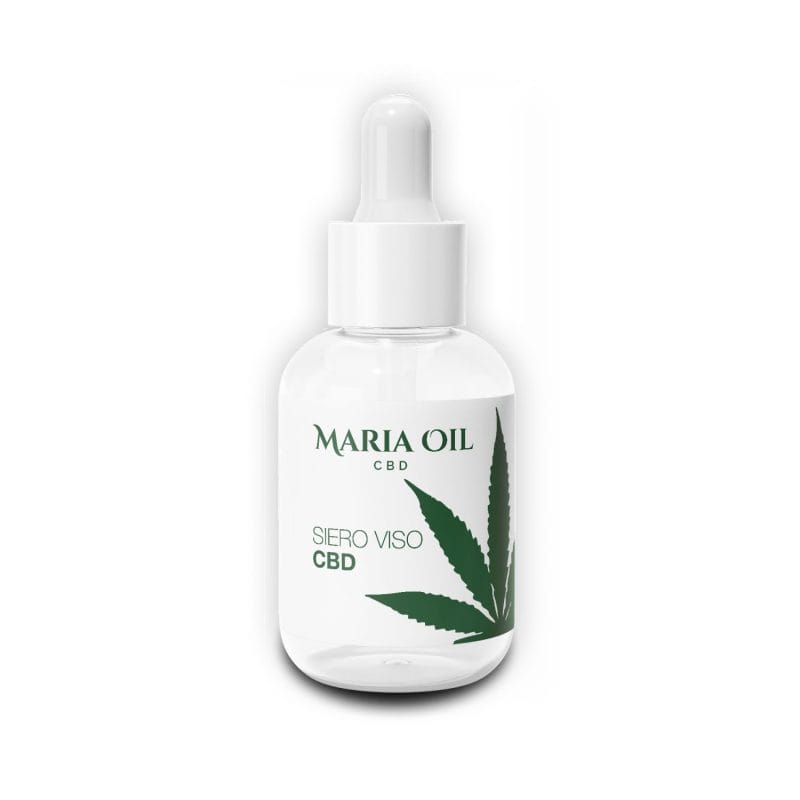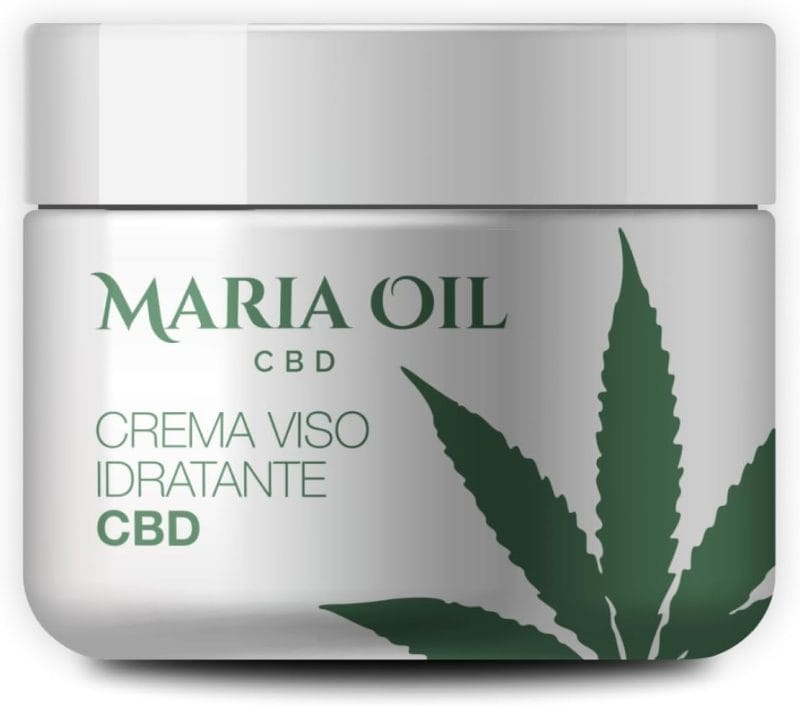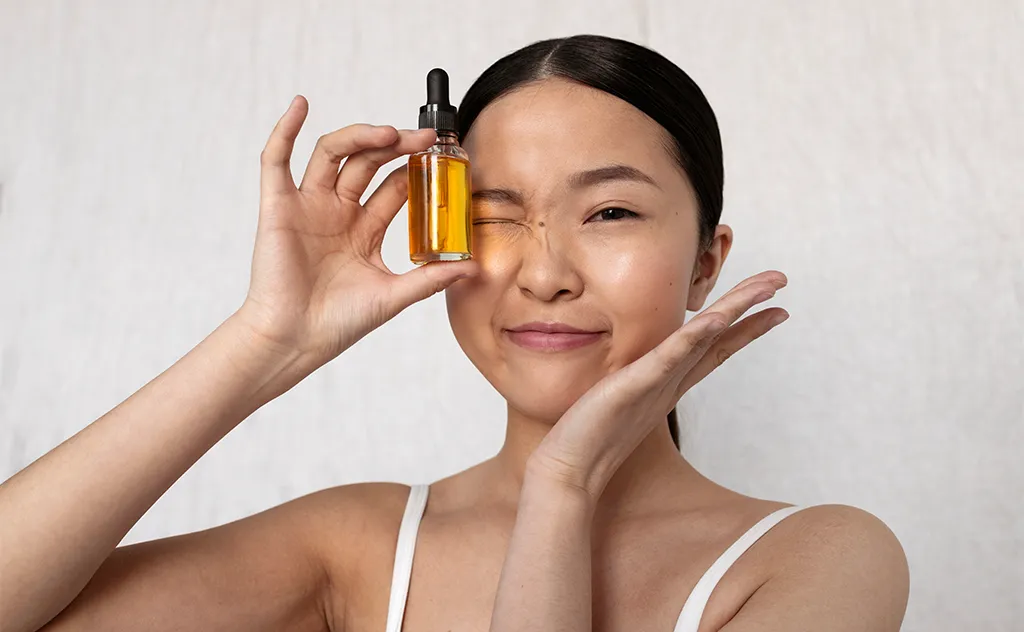In a world where health, as well as beauty and self-care, are increasingly the focus of our attention, the search for effective solutions to combat dry and dehydrated skin is the order of the day. This is especially true at particular times of the year when the skin is stressed by extreme weather conditions, such as cold or heat.
Among the many options available, natural oil emerges as a valuable and versatile ally for restoring radiance and moisture to the skin.
Have you ever considered it? Thanks to its composition rich in nutrients and antioxidants, oil for dry skin is a powerful remedy for counteracting signs of skin dryness.
There are many natural solutions and for all tastes. From the richness of olive oil to the regenerating properties of argan oil, we will examine the unique characteristics of each type of oil for dry skin and discover how to integrate them effectively into your beauty routine. You will discover how these gifts of nature can transform your wellness experience, offering an effective and gentle solution for visibly healthier and more radiant skin.
-
Product on sale
 CBD Face SerumOriginal price was: £31.00.£12.40Current price is: £12.40.
CBD Face SerumOriginal price was: £31.00.£12.40Current price is: £12.40.
Natural oils for dry skin
Oil for dry skin, especially if it’s of vegetable origin, is an extremely effective and delicate product. It’s rich in essential fatty acids that help restore the skin hydrolipid barrier and retain moisture, as well as deeply moisturise it.
For dry skin you can try:
- CBD oil: powerful anti inflammatory, moisturising, antioxidant, soothing active ingredient for all-round skin care, the benefits of CBD cosmetics are many;
- Coconut oil: is an excellent emollient, which means it helps soothe and soften dry and chapped skin;
- Olive oil: is antioxidant and helps protect the skin from damage caused by free radicals;
- Almond oil: is light and non-comedogenic, perfect for dry and sensitive skin, and it’s rich in vitamins and minerals that help nourish and moisturise;
- Argan oil: contains essential fatty acids and is antioxidant;
- Jojoba oil: non-comedogenic oil, perfect for sensitive or diseased skin.
As we will see in a moment, natural oils can also be used to prepare face and body masks. But given the vast choice on the market, how do you find the best natural oil for dry skin? It is quickly said!
What is the best oil for dry skin?
The offer, both online and offline, is very wide and all products seem equally valid. Among so many items, the best oil for dry skin is the one that suits your needs.
Here is a guide that will help you determine the most suitable oil for your skin:
- Know your type of skin: every type of skin has its own needs. If you only have dry skin, you could benefit from richer and more moisturising oils, while if your skin is also sensitive, you would prefer lighter and non comedogenic oils;
- Learn the properties of oils: each oil has unique characteristics, familiarise yourself with the properties of oils to see which one suits you best;
- Trial and error: do small skin tests with the oils you are considering, apply a small amount to a limited area of skin and observe any allergic reactions or irritations, this will help you avoid possible problems before using the oil on your whole face or body;
- Consider the season: the needs of the skin may vary with the seasons, you may prefer lighter oils in summer and richer oils in winter when the skin is more prone to dryness;
- Read reviews: other people’s experiences may provide valuable advices, read online reviews to get some feedback on how certain oils worked for other people suffering from the same skin disorders;
- Consult an expert: if you have any doubt or specific skin disorders, we recommend consult a dermatologist;
- Explore mixed compositions: some oils are the combination of different active ingredients, designed to provide a mix of benefits.
Experience with these tips and take your time to find the oil that works best for your dry skin, ensuring optimal hydration and healthy skin.
-
Product on sale
 CBD Face SerumOriginal price was: £31.00.£12.40Current price is: £12.40.
CBD Face SerumOriginal price was: £31.00.£12.40Current price is: £12.40.
Oils for dry facial skin
The ideal oil for dry facial skin should have different properties to provide an effective moisturisation and keep the skin healthy in a part of the body where cells regenerate very quickly.
Here is some of the characteristics to look for when choosing an oil for dry facial skin:
- Deep moisturisation: the oil should be able to penetrate deeply into the skin to provide moisturisation at deeper levels, helping to reduce dryness and flaking;
- Antioxidant: antioxidants help protect the skin from damage cause by free radicals, contributing to keeping it young and reducing the signs of aging;
- Essential fatty acids: omega-3 and omega-6 are essential fatty acids that may help to restore the hydrolipid film of the skin, improving its elasticity and preventing moisture loss;
- Non-comedogenic: non-comedogenic oils do not clog pores, reducing the risk of acne and pimples;
- Lightness: a light oil is preferable for facial skin to avoid a heavy feeling or an oily appearance, also because this area is notoriously more delicate than the rest of the body;
- Lack of irritating ingredients: choose an oil with natural ingredients and without irritating additives to avoid undesired reactions on sensitive skin.
Some oils that fulfil these characteristics are those we mentioned earlier such as olive oil, coconut oil, sweet almond oil, argan oil and jojoba oil.
How to use nourishing oil on the face + moisturising cream?
Nourishing oil can be used on the face in many different ways and combined with other natural products to create your complete skincare. Here is everything you can do by using an oil for dry facial skin:
- Moisturiser: simply apply a small amount of oil to a clean, dry face and massage the oil in evenly, paying particular attention to the driest areas, such as the forehead, cheeks and nose;
- Mask: to prepare a mask, you need to mix two tablespoons of nourishing oil with one or two tablespoons of honey or yoghourt, apply the mask on a clean, dry face and leave on for 15-20 minutes, then rinse off with lukewarm water;
- Night treatment: to use it this way, apply a small amount of oil to a clean, dry face before going to bed;
- For wrinkles: apply the oil twice a day;
- For sun spots: some nourishing oils help with this summery ailment, such as rosehip oil and vitamin E oil;
- Acne treatment: such as CBD oil, jojoba and almond oils.
Let’s see some tips to use nourishing oil on facial skin:
- Start with a small amount of oil and gradually increase, if necessary;
- Apply the oil to a clean, dry face;
- Massage evenly over the entire face, paying particular attention to the driest areas;
- Avoid applying oil close to the eye;
- If you have sensitive skin, test the oil in a small, hidden area before applying it all over your face.
Remember to pay attention while using facial products, since it is a delicate area of the body and requires gradual testing. You can complete your treatment by adding a natural moisturising cream after applying the face serum.
-
Product on sale
 CBD Moisturising Face CreamOriginal price was: £27.00.£10.80Current price is: £10.80.
CBD Moisturising Face CreamOriginal price was: £27.00.£10.80Current price is: £10.80.
Oils for dry body skin
Oil for dry skin, however, is not exclusive to the face. There are many people suffering from dry skin on their hands, arms or legs.
Let’s see which features an oil designed for dry body skin must have:
- Moisturiser: as for the face, it is essential to choose a natural moisturising oil;
- Rich texture: it is preferable for the body, especially for particularly dry areas such as elbows, knees and heels;
- Fast absorption: a non-greasy moisturising oil avoids leaving a sticky feeling when wearing clothes;
- Soothing properties: found in calendula oil or lavender oil, soothe the irritation;
- Vitamins and antioxidants: they protect skin from environmental damage and promote general health;
- Suitable for all parts of the body: this is very important, the oil should be safe to use on the whole body;
- Multi-purpose: some oils can also be used as bath additives, offering an extra moisturisation during the cleansing process.
Some popular oils for dry body skin include CBD oil, coconut oil, almond oil, jojoba oil, avocado oil and rosehip oil.
How to apply oil to the skin
If you want the oil for dry skin to be really effective, you need to follow a few little rules. Nothing too hard, just a few best practices:
- Prepare the skin: wash the body with a mild detergent and rinse well, pat dry with a towel to remove excess moisture, but do not dry completely;
- Choose the right oil: follow the rules we mentioned before relating to making the right choice for your type of skin;
- Apply the oil: pour a small amount of oil into your hands and massage it all over your body, paying particular attention to the driest areas such as your hands, feet and knees;
- Massage: massage gently for at least 5 minutes to help it absorb completely;
- Wear comfortable clothes: avoid wearing tight or synthetic clothing after applying the oil, because they could retain heat and make the absorption difficult.
Here are some additional tips to apply oil to dry body skin:
- For extra hydration, you can apply the oil before going to bed and leave it overnight;
- You can also add a few drops of oil to your shower gel or shampoo;
- If you have sensitive skin, you can test the oil in a small, hidden area before applying it all over your body.
With regular use, the oil can really help to moisturise dry skin and make it softer and smoother.
How to treat the skin to protect it
A regular, proper skin care is essential to keep it healthy, hydrated and protected from external agents. Whether you already suffer from dry skin or, at the first signs of it, want to prevent it.
Here are some general tips to treat your skin properly:
- Cleansing: use a mild cleanser suitable for your skin type with lukewarm or cool water;
- Exfoliation (1-2 times a week): use an exfoliant to remove dead skin cells and improve skin radiance (but do not exfoliate too often or excessively);
- Moisturisation: apply a good moisturiser every day, especially after cleansing;
- Nourishing: incorporate nourishing oils into your routine to plump up your skin;
- Masks and weekly treatments: use moisturising or nourishing masks once a week to give an extra boost to your skin care routine;
- Balanced diet: choose a healthy diet rich in antioxidants, vitamins and minerals;
- Drink water: water helps to keep the skin hydrated from the inside and eliminates toxins;
- Night skin care routine: use more nourishing and concentrated products at night, such as serums or night creams, to take advantage of the skin’s natural regeneration process during sleep;
- Beware of chemicals: prefer skin care products free of irritating and harmful ingredients;
- Specific care for dermatological problems: if you have specific skin conditions, such as acne or dermatitis, consult a dermatologist for customised care and find products suitable for that condition.
Adapt your skincare routine to the specific needs of your skin, experimenting with different products to find the ones that work best for you. Remember that regularity is crucial for long-lasting results.
 Contact us
Contact us 






